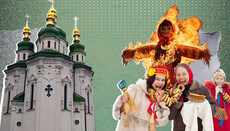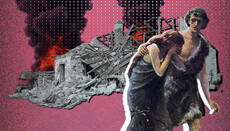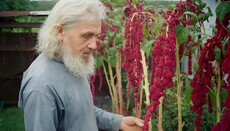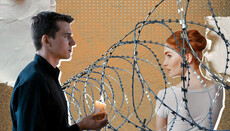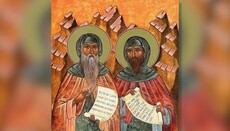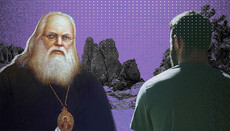What does the main social document of the Constantinople Patriarchate say?
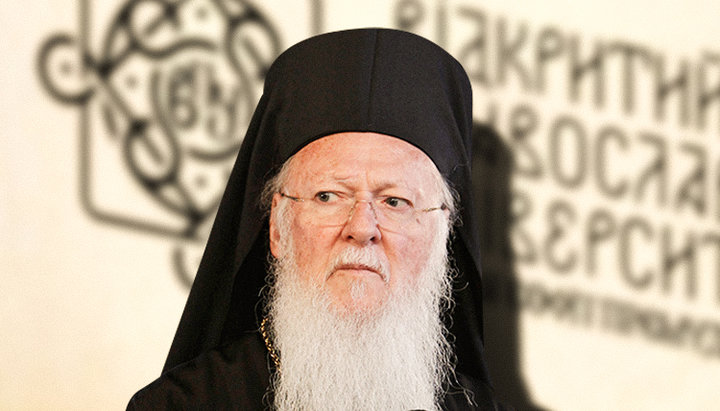
We analyze the Phanar’s document “For the Life of the World: Toward a Social Ethos of the Orthodox Church”, which expresses the present worldview of this Church.
In Ukraine, on the basis of the "Open Orthodox University", which is a clearly ecumenical project, a discussion on the document of the Constantinople Patriarchate entitled “For the Life of the World: Toward a Social Ethos of the Orthodox Church” was held in the format of webinars. This document is intended to present the position of Constantinople on many topical issues in the political, social and other fields. What does its text really show?
The document “For the Life of the World: Toward a Social Ethos of the Orthodox Church” was approved by the Synod of the Patriarchate of Constantinople in January 2020 and presented to the general public in March 2020. The document reflects the position of the Patriarchate of Constantinople on social inequality, poverty, racism, human rights, bioethics, technology and climate change.
The text of the document was drafted by the commission created by the Phanar in 2017, which included 12 theologians of the Patriarchate of Constantinople from different countries. For example, David Bentley Hart, a convert from Anglicanism to Orthodoxy, is a theologian, philosopher, culturologist, and social democrat who is heavily engaged in the study of various philosophical and theological systems, including Buddhism, Hinduism, Jainism, and other dharmic religions. In particular, he claims that there is no schism between Orthodoxy and Catholicism, and eternal salvation is inherited by all people, regardless of faith, morality, etc. (apocatastasis). Or an environmental advisor to the Patriarch of Constantinople, Archdeacon John Chrissavgis, whose theological interests are described as follows: church reform, environmental awareness, ecumenism.
The document "For the Life of the World ..." is positioned as a historical document, as a milestone in the theological understanding of the modern world, a peak that no one has ever reached.
But the fact is that a similar document of the same importance and on the same range of issues was adopted by the Bishops' Council of the Russian Orthodox Church exactly 20 years ago. It is entitled "The Basis of the Social Concept of the Russian Orthodox Church". And the comparison with the document of Constantinople "For the Life of the World ...", as well as the conclusions inevitably following this comparison, can hardly be avoided.
Social concepts of the Phanar and the ROC: Is there a difference?
One of the authors of “For the Life of the World ...” Archdeacon John Chrissavgis expressed this comparison in an article devoted to the presentation of the document in a few very precise words: “In 2000, the Moscow Patriarchate published “The Basis of the Social Concept” – a remarkable, albeit rudimentary attempt to define social principles of the Orthodox Church in Russia after a long period of its oppression by the state. In general, this document was critical of the ‘world’, viewing it as a threat to be challenged and overcome. Such a defensive stance can survive and even flourish in confessional isolation, but in a more ecumenical context it is not so effective.”
These words deserve to be read again and reflect on their meaning. Fr. John Chrissavgis obviously wanted to pat his “daughter” on the back and praise her for “an attempt” from the position of the “Mother Church”, justifying "rudimentary" nature of this "attempt" by "a long period of oppression" of the Church by the state. But in reality, this “period of oppression" is an era of confessionalism that has never happened before in the history of the Church. The state did not “oppress” the Church; it literally destroyed Her, blowing up churches, shooting the clergy, and imprisoning believers. This era gave thousands of confessors and martyrs, whose blood became the seed for the growth of the Body of the Church, as in the first centuries of Christian history.
And after this era, the Russian Orthodox Church really has something to say to the world. To say based not on desk research (although on it, too), but on the fidelity to Christ and His teaching. Probably, this is exactly what the Phanariot thinker called “rudimentary” (this word literally means residual, surviving, underdeveloped). The "world" itself, according to Fr. John Chrissavgis, is viewed critically as a threat in “The Basis of the Social Concept of the ROC”. And this is fully consistent with the words of the Holy Scripture: “Do not love the world or anything in the world. If anyone loves the world, love for the Father is not in them. For everything in the world – the lust of the flesh, the lust of the eyes, and the pride of life – comes not from the Father but from the world” (1 John 2, 15-16), “don’t you know that friendship with the world means enmity against God? Therefore, anyone who chooses to be a friend of the world becomes an enemy of God” (James 4, 4). The Constantinople theologian of Constantinople is annoyed that such a critical attitude to the world is not so effective “in a more ecumenical context”. Well, the Phanar’s document “For the Life of the World ...” in this respect is 100% effective.
After the adoption of “The Basis of the Social Concept” of the ROC in 2000, there was an idea that the adoption of such a document was necessary already at the level of the fullness of the Church. The Church must answer the questions that modern life with its scientific achievements, changes in the economy and social sphere challenges us. This could be done only by consolidating all the spiritual and intellectual forces of all the Local Churches. But it did not happen. And now the appearance of the Constantinople document “For the Life of the World ...” shows that the understanding of the fundamentals of Christian faith and modes of their application in modern life varies among the Local Churches.
The Patriarchate of Constantinople and the ROC look differently at many phenomena of the modern world and give them different theological assessments. And if the religious conflict in Ukraine can be quickly resolved through negotiations if desired, then to overcome the difference in the worldview, which has already been fixed at the level of conceptual documents, is very difficult, if at all possible.
Now there is no Eucharistic communion between the Moscow and Constantinople Patriarchates. The reason for this was the Phanar’s interference in the affairs of the Ukrainian Orthodox Church, the creation of a parallel religious structure and the bestowal of the Tomos of conditional autocephaly to it. But this is only the visible reason for the gap in the understanding of Orthodoxy, which began to take shape many decades before. The Patriarchate of Constantinople and the ROC look differently at many phenomena of the modern world and give them different theological assessments. And if the religious conflict in Ukraine can be quickly resolved through negotiations if desired, then to overcome the difference in the worldview, which has already been fixed at the level of conceptual documents, is very difficult, if at all possible.
Here are some examples.
Attitude to LGBT
As you know, the litmus test for being "progressive" and "retrogressive" today is the attitude towards LGBT representatives. This is how this attitude is expressed in “The Basis of the Social Concept of the Russian Orthodox Church”:
"XII.9. Holy Scriptures and the teaching of the Church unequivocally deplore homosexual relations, seeing in them a vicious distortion of the God-created human nature. <...> ‘Be not deceived: neither effeminate nor abusers of themselves with mankind <...> shall inherit the kingdom of God’. <...> The patristic tradition equally clearly and definitely denounces any manifestation of homosexuality. <...> The Orthodox Church proceeds from the invariable conviction that the divinely established marital union of man and woman cannot be compared to the perverted manifestations of sexuality. She believes homosexuality to be a sinful distortion of human nature, which is overcome by spiritual effort leading to the healing and personal growth of the individual.”
And here's what the Constantinople document "For the Life of the World..." says about LGBT.
It must be noted that in this text there is not a single word that homosexuality is a grave sin that deprives a person of hope for eternal life. Moreover, sexual perversions are implicitly justified here. They say, regardless of sexual orientation, the main thing is to look for the "image and likeness of God" in a person.
“§19 We live in an age in which sexuality has come more and more to be understood as a personal fate, and even a private matter. A great many political and social debates in the modern world turn upon the distinct demands and needs of heterosexual, homosexual, bisexual, and other sexual ‘identities’. <…> It must be accounted, moreover, a basic right of any person—which no state or civil authority may presume to violate—to remain free from persecution or legal disadvantage as a result of his or her sexual orientation. But the Church understands human identity as residing primarily not in one’s sexuality or in any other private quality, but rather in the image and likeness of God present in all of us. All Christians are called always to seek the image and likeness of God in each other, and to resist all forms of discrimination against their neighbors, regardless of sexual orientation.”
It must be noted that in this text there is not a single word that homosexuality is a grave sin that deprives a person of hope for eternal life. Moreover, sexual perversions are implicitly justified here. They say, regardless of sexual orientation, the main thing is to look for the "image and likeness of God" in a person.
Attitude to politics
In the question of the attitude towards politics, the ROC testifies that the Church unites people regardless of their political views and does not give preference to any particular political regime: "In face of political differences, contradictions and struggle, the Church preaches peace and co-operation among people holding various political views. She also acknowledges the presence of various political convictions among her episcopate, clergy and laity, except for such as to lead clearly to actions contradicting the faith and moral norms of the church Tradition" (The Basis of the Social Concept of the ROC).
But the Constantinople document "For the Life of the World..." fully advocates only for one particular political regime:”§10 In many countries in the world today, civil order, freedom, human rights, and democracy are realities in which citizens may trust <…>. … and it would be irrational and uncharitable of Christians not to feel a genuine gratitude for the special democratic genius of the modern age. Orthodox Christians who enjoy the great advantages of living in such countries should not take such values for granted, but should instead actively support them, and work for the preservation and extension of democratic institutions and customs within the legal, cultural, and economic frameworks of their respective societies.”
The glorification of the democratic values, human rights and all kinds of civil liberties in the document "For the Life of the World..." is expressed so clearly that it allowed some political scientists to declare a striking similarity of the historical concept "For the Life of the World..." with the election programme of the U.S. presidential candidate from the Democratic Party Joe Biden.
How to live life to please God?
In general, the direction of the Constantinople document "For the Life of the World ..." is basically a proposal of solutions to the problems of the earthly existence of the human, the formulation of the principles of economic and social life. The direction of “The Basis of the Social Concept” of the Russian Orthodox Church is how to live on earth in a way that pleases God. Let's compare how these two documents view human labour.
The document of Constantinople "For the Life of the World ...": “§37 The Church insists that a just economy or business is one that ensures not only the reasonable productivity and respectable pay of workers, but their opportunities for sufficient rest from work…”, etc., including issues of corruption, investing abroad and bringing products to the international market.
And here is how labour is viewed in “The Basis of the Social Concept” of the ROC: ”From a Christian point of view, labour itself is not an absolute value. It becomes blessed when it is a collaboration with the Lord and contributes to the fulfillment of His plan for the world and the human. However, labour is not pleasing to God if it is aimed at serving the selfish interests of the individual or human communities, as well as at satisfying the sinful needs of the spirit and flesh. The Holy Scripture testifies to two moral impulses to work: to work to feed oneself without burdening anyone, and to work to serve the needy. The Apostle writes: ‘let him labour, doing honest work with his own hands, so that he may have something to share with anyone in need’ (Eph. 4.28). Such work educates the soul and strengthens the human body, gives a Christian the opportunity to exercise their faith in God-pleasing works of mercy and love for others.”
It is also interesting to compare the very first words of the two documents.
The document of Constantinople "For the Life of the World ...": “§1 The Orthodox Church understands the human person as having been created in the image and likeness of God (Genesis 1:26). To be made in God’s image is to be made for free and conscious communion and union with God in Jesus Christ, inasmuch as we are formed in, through, and for him (Colossians 1:16).”
“The Basis of the Social Concept” of the ROC: “I. 1. The Church is the assembly of believers in Christ, which He Himself calls everyone to join. In her ‘all things heavenly and earthly’ should be united in Christ, for He is the Head of ‘the Church, which is His Body, the fullness of Him that filleth all in all’ (Eph. 1:22-23). In the Church, the creation is deified and God’s original design for the world and man is fulfilled by the power of the Holy Spirit.”
Both speak of the unity of man with Christ. But the Constantinople document does not emphasize that this unity is possible only in the Church of Christ.
Finally, there is the main message of the last paragraphs of the two documents.
The Constantinople document "For the Life of the World ...": ”The Orthodox Church sees it as her calling to condemn cruelty and injustice, the economic and political structures that abet and preserve poverty and inequality, the ideological forces that encourage hatred and bigotry; but it is not her calling to condemn the world, or nations, or souls.”
“The Basis of the Social Concept” of the ROC: “The Church cannot favour a world order that puts in the centre of everything the human personality darkened by sin.”
These words can be seen not simply as a difference but as a direct contradiction of approaches and views.
A step towards ecumenical unity?
As already mentioned, in the middle of May, an online discussion of the document of the Church of Constantinople was held among the Ukrainian intelligentsia. One of the main theses of the speakers was the idea that "For the Life of the World..." is a step towards the rapprochement of the Orthodox, Catholics and Protestants.
Konstantin Sigov, Director of the Centre for European Humanities Studies of the National University "Kyiv-Mohyla Academy", said the following:
"This document is already read by theologians and philosophers of the Catholic Church, Protestant Church – the largest Churches in the world. According to Anne-Marie Peltier, a biblical scholar, ‘For the Life of the World...’ is a common language of the Orthodox and Catholics. That is, for a billion Roman Catholics, this document is important, and it will revive the discussion. Just like it did with the Protestants. That is, this document offers a new space for dialogue.”
***
Answering the question posed at the beginning of the article: as evidenced by the Social Concept of the Patriarchate of Constantinople, we can say that it shows that the Phanar is increasingly moving towards liberalism, ecumenism, concern for the environment and human rights, and advocating democracy and social justice. Сoncern for the man and his welfare during his earthly life is certainly good, but it is somewhat different from the Saviour’s words: “Seek first the Kingdom of God and His righteousness, and all these things shall be added unto you” (Matthew 6, 33).
